Leaning Disinfectant

Is it safe to use lemon juice as a disinfectant in homemade cleaning recipes ?
Is it safe to use lemon juice as a disinfectant in homemade cleaning recipes? Let's take a closer look at the science behind this question. Lemon juice has a high acidity level, with a pH of around 2, making it effective at breaking down dirt and grime. However, when it comes to killing bacteria and viruses, the acidity alone may not be enough. While lemon juice does have some antimicrobial properties due to its natural compounds like limonene, these are not strong enough to completely disinfect surfaces. In fact, studies have shown that lemon juice is not effective at killing certain types of bacteria like E. coli and Salmonella. Some homemade cleaning recipes call for combining lemon juice with other ingredients like vinegar or hydrogen peroxide. While these combinations may increase the disinfecting power, they still may not be as effective as commercial disinfectants. There are also safety concerns to consider when using lemon juice as a disinfectant. Due to its high acidity, lemon juice can be corrosive to certain surfaces like marble and granite. It can also damage metals over time. Lemon juice can cause skin irritation or burns if it comes into contact with open wounds or sensitive skin. It is important to wear gloves while using it in cleaning solutions. Additionally, some people may be allergic to lemons or their scent, which could trigger an allergic reaction when using lemon juice in cleaning products. If you are looking for natural disinfectants, there are several alternatives to lemon juice such as white vinegar, hydrogen peroxide, tea tree oil, and essential oils like eucalyptus, lavender, and peppermint oils. These alternatives have strong antimicrobial properties and can be added to homemade cleaning solutions for a fresh scent. In conclusion, while lemon juice can be a useful ingredient in homemade cleaning recipes due to its degreasing properties, it should not be relied upon as a sole disinfectant. If you are concerned about germs and bacteria, it is best to use a commercial disinfectant or one of the alternative natural disinfectants mentioned above.
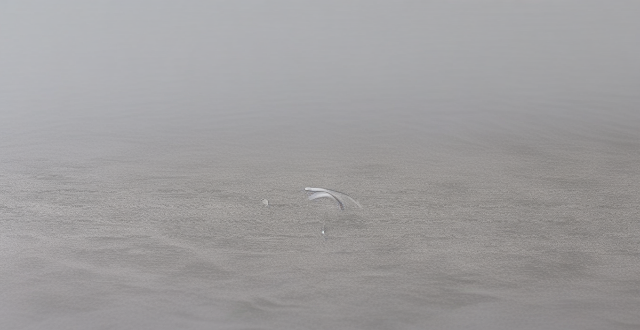
How long does the virus that causes COVID-19 survive on surfaces, and how should those surfaces be cleaned and disinfected ?
The COVID-19 virus, SARS-CoV-2, can survive on surfaces for varying lengths of time, depending on factors such as the type of surface, temperature, humidity, and the amount of virus present. The timeline for virus survival on surfaces includes up to 4 hours on copper, up to 24 hours on cardboard, and up to 72 hours on plastic, stainless steel, glass, banknotes, and coins. To effectively clean and disinfect surfaces, it is recommended to follow a two-step process: cleaning the surface with soap or detergent and water, and then disinfecting the surface with an EPA-approved disinfectant. Examples of approved disinfectants include diluted bleach, alcohol solutions with at least 70% alcohol, hydrogen peroxide (3%), and quaternary ammonium compounds. It is important to wear gloves when handling disinfectants, ensure proper ventilation, never mix different cleaning products, and disinfect frequently touched surfaces regularly.

What types of disinfectants are safe to use around children and pets ?
The article discusses various types of disinfectants that are safe for use around children and pets. These include alcohol-based disinfectants, hydrogen peroxide, vinegar, baking soda, chlorine bleach (in a dilute solution), steam cleaning, and tea tree oil. It emphasizes the importance of proper usage, storage, and supervision to ensure safety for all family members, including pets.

Is there a natural alternative to bleach that can be used for disinfecting surfaces ?
There are several natural alternatives to bleach that can be used for disinfecting surfaces, including vinegar, hydrogen peroxide, and tea tree oil. These alternatives are effective against bacteria, viruses, and fungi, and are also safer and eco-friendly compared to bleach. Vinegar is inexpensive and easy to find, but has a strong smell and may damage certain surfaces if left on for too long. Hydrogen peroxide is also inexpensive and easy to find, but can be harmful if ingested or inhaled in large quantities and may fade certain fabrics or surfaces if left on for too long. Tea tree oil is a natural antimicrobial agent that is safe for pets and children, but is expensive compared to other natural disinfectants and may cause skin irritation if not diluted properly. By using these natural disinfectants, you can keep your home clean and healthy without exposing yourself or your family to harsh chemicals.
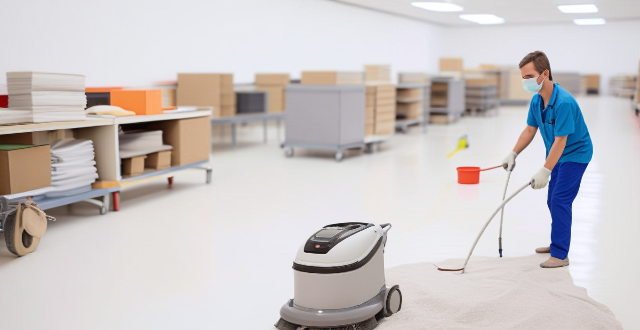
What are the best practices for cleaning and sanitizing reusable PPE ?
Best practices for cleaning and sanitizing reusable PPE include removing visible contamination, cleaning the equipment with a suitable agent, and sanitizing it using chemical disinfection, heat sterilization, or UV radiation. Hand washing or machine washing can be used for cleaning, while chemical disinfection involves immersing the PPE in a disinfectant solution, heat sterilization uses high temperatures to kill microorganisms, and UV radiation uses ultraviolet light for the same purpose. It is important to follow the manufacturer's instructions and ensure that the PPE is stored in a clean, dry location until ready for use.
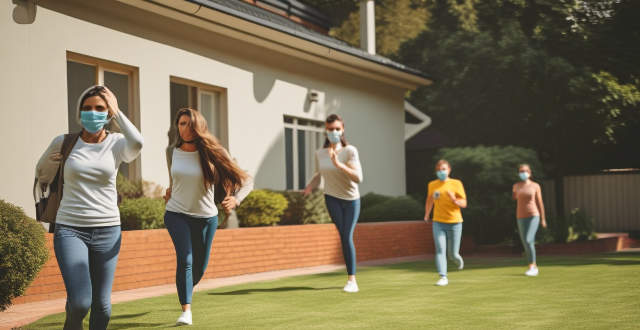
Is it necessary to wear protective gear when applying disinfectants in household settings ?
In conclusion, wearing protective gear when applying disinfectants in household settings is necessary to protect yourself from potential harm. Disinfectants contain chemicals that can be harmful if not used properly, and there are risks associated with their use. Personal Protective Equipment (PPE) such as gloves, goggles, masks, and protective clothing can help minimize these risks. While it may not be necessary to wear full PPE every time you clean your home, there are certain situations where it is recommended. It is always better to err on the side of caution and wear appropriate PPE when using disinfectants to ensure your safety and health.

What are the best natural ingredients for making homemade cleaning products ?
Cleaning your home doesn't have to involve harsh chemicals or expensive store-bought products. With a few natural ingredients, you can create effective and eco-friendly cleaning solutions that are safe for your family and the environment. Here are some of the best natural ingredients for making homemade cleaning products: 1. White Vinegar: A versatile and inexpensive cleaning agent that cuts through grease, disinfects surfaces, removes stains and odors, and deodorizes the air. Use it as an all-purpose cleaner, glass cleaner, or oven cleaner. 2. Baking Soda: A gentle yet powerful abrasive that tackles tough cleaning jobs without scratching surfaces. It neutralizes acidic odors, leaves no residue behind, and can be used as a sink and tub scrub, carpet deodorizer, or laundry booster. 3. Lemon Juice: A natural disinfectant and deodorizer that leaves surfaces smelling fresh and clean. It cuts through grease, leaves a pleasant citrus scent, and can be used as an all-purpose cleaner, chrome polish, or hardwater stain remover. 4. Castile Soap: A vegetable-based soap that is gentle on skin and surfaces while still being effective at cutting through dirt and grime. It is biodegradable, eco-friendly, and can be used in various dilutions for different purposes such as an all-purpose cleaner, floor cleaner, or handwash. 5. Essential Oils (Optional): While not strictly cleaning agents, essential oils can enhance the effectiveness of your homemade cleaning products by adding antibacterial properties and a pleasant scent. Popular choices include tea tree oil, lavender oil, and lemon oil.
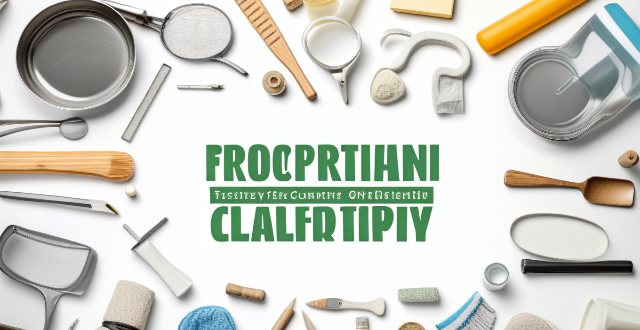
How do I properly clean and sanitize second-hand items before using them ?
The provided text offers a comprehensive guide on properly cleaning and sanitizing second-hand items to ensure their safety for use. The steps are divided into general cleaning procedures, specific instructions for different types of items like clothing, footwear, furniture, kitchenware, toys, and electronics, and additional tips on sanitization. The process involves inspection, initial cleaning, disassembly (if needed), soaking for smaller items, and using appropriate cleaning methods for various items. Sanitizing tips emphasize the wise use of disinfectants, ensuring ventilation, protecting oneself from harsh chemicals, and drying items thoroughly to prevent mold growth. This detailed guide ensures that second-hand items are not only reused but also recycled safely.
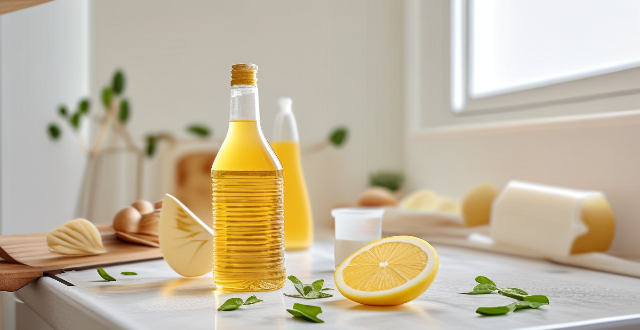
What are some eco-friendly cleaning tips for my home ?
Eco-friendly cleaning tips for your home include using natural products like vinegar, baking soda, and lemon juice; reducing plastic waste by opting for reusable cloths and containers; minimizing water usage during cleaning tasks; choosing energy-efficient appliances; and making your own cleaning solutions. These practices help maintain a clean home while also reducing environmental impact.
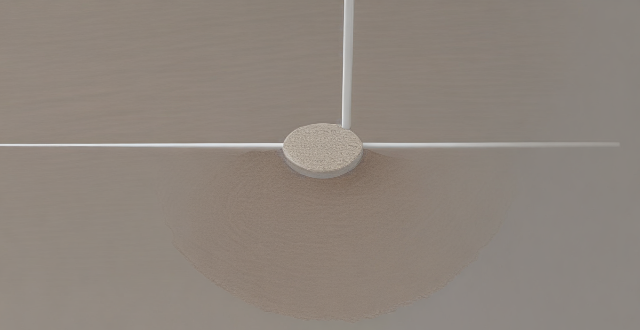
Can regular cleaning and disinfection prevent the transmission of other viruses besides COVID-19 ?
Regular cleaning and disinfection can prevent the transmission of other viruses besides COVID-19, such as those causing colds and flu. The CDC recommends routine cleaning of frequently touched surfaces to reduce the risk of infection. Effective cleaning involves using soap or detergent to remove dirt, followed by disinfecting with a product labeled for the specific virus. High-touch surfaces should be prioritized, and proper ventilation and glove use are advised. Following these practices helps create a safer environment.

Can essential oils be used in homemade cleaning solutions, and if so, which ones work best ?
Essential oils can be added to homemade cleaning solutions for natural, eco-friendly alternatives to commercial cleaners. Some of the best oils for cleaning include lemon, tea tree, lavender, peppermint, eucalyptus, and clove, each with its own unique benefits and uses. To use essential oils in cleaning solutions, choose a base like distilled water, white vinegar, baking soda, or castile soap, add the oils, mix well, test on a small area, and then clean as usual. However, it's important to always dilute essential oils before use and avoid using them around pets and children unless specified safe.

How often should I disinfect my home to prevent the spread of germs ?
To prevent the spread of germs in your home, it's important to disinfect high-touch surfaces daily, including doorknobs, light switches, countertops, bathroom fixtures, and electronic devices. Floors and carpets should be cleaned regularly as well, with hardwood floors mopped weekly and carpets vacuumed twice a week and steam cleaned monthly. Soft furnishings like couches and chairs should be vacuumed weekly, and bedding should be washed in hot water every week. In the kitchen and eating areas, cutting boards and utensils should be washed after each use, and dishes and cups should be cleaned after each meal. Laundry, including clothes and towels, should be washed immediately after wearing or use. Children's toys should also be disinfected regularly, with plastic toys wiped down weekly and plush toys washed monthly. When disinfecting, it's important to follow the instructions on the product label, avoid mixing cleaning products, wear gloves to protect your hands, ensure proper ventilation by opening windows or turning on fans, clean before disinfecting, use paper towels to avoid cross-contamination, don't forget to clean and disinfect trash cans, and sanitize sponges and brushes regularly. By following these guidelines, you can help prevent the spread of germs within your home and maintain a healthy environment for you and your family.
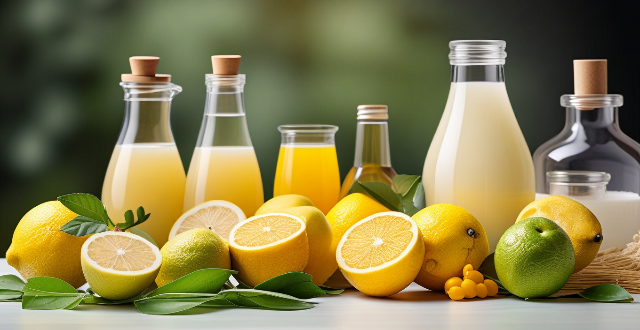
Are there any natural or eco-friendly disinfection solutions that are effective against viruses ?
The article discusses natural and eco-friendly disinfection solutions that are effective against viruses. It mentions four options: lemon juice and salt, white vinegar, tea tree oil, and hydrogen peroxide. Each option has a procedure for use and is effective in killing germs on surfaces. The article concludes that while these solutions may require more time and effort compared to chemical disinfectants, they offer a safer alternative for those concerned about environmental impact and health risks associated with harsh chemicals.

What are the pros and cons of using vinegar as a cleaning agent in homemade solutions ?
Using vinegar as a cleaning agent in homemade solutions has both advantages and disadvantages. It is a natural disinfectant, deodorizer, environmentally friendly, cost-effective, and versatile. However, its acidic nature can damage certain surfaces and materials, and its strong smell may not be desirable in some environments. It is essential to understand the properties of vinegar and use it appropriately to avoid damaging surfaces or leaving behind unwanted odors.

What are the best disinfection methods for public spaces during a pandemic ?
Best disinfection methods for public spaces during a pandemic include regular cleaning and disinfection, use of UV-C light disinfection, hand hygiene facilities, and air filtration systems. Regular cleaning and disinfection of high-touch surfaces helps to remove any potential contaminants and reduce the risk of transmission. UV-C light has been shown to effectively kill viruses and bacteria by damaging their DNA or RNA structure. Providing adequate hand hygiene facilities encourages individuals to maintain good hand hygiene practices. Installing air filtration systems with HEPA filters can help to reduce the concentration of airborne particles in public spaces.
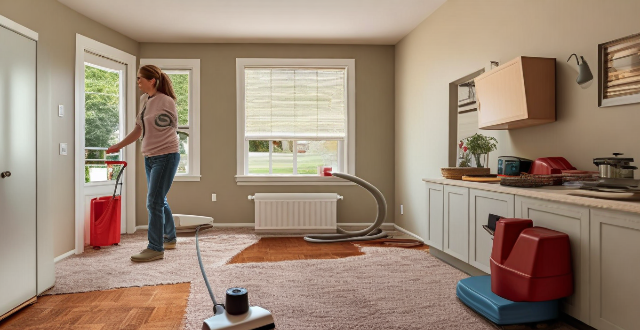
What are some tips for cleaning hard-to-reach areas in my home ?
Cleaning hard-to-reach areas in your home can be challenging, but with the right tools and techniques, it becomes more manageable. Use extendable dusters, flexible brushes, and long-handled tools for better access. Be creative with vacuum attachments, steam cleaners, and magnetic sweepers to simplify the process. Remember safety by using non-slip step stools and wearing gloves. Regular cleaning schedules and making cleaning fun can help maintain these areas.

What are some tips for running uphill without getting too tired ?
To run uphill without getting too tired, warm up properly, shorten your stride, wear proper footwear, lean slightly into the hill, focus on breathing, take breaks if needed, incorporate hill training into your routine, stay hydrated, use hand gestures, and practice mindful running.
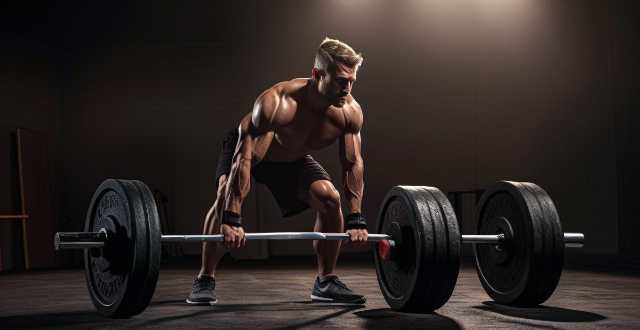
What are the best stretches for cooling down after a gym session ?
After a gym session, it's crucial to gradually cool down your body. Here are the best stretches for that: hamstring, quadriceps, calf, hip flexor, and back stretches. These exercises help reduce heart rate, lower blood pressure, prevent muscle soreness, improve flexibility, and range of motion. Remember to hold each stretch for at least 30 seconds and avoid bouncing to prevent injury.

How can I ensure safe travel to an island during COVID-19 ?
To ensure safe travel to an island during COVID-19, research the destination's situation, choose a safe mode of transportation, pack essential items, follow safety guidelines, and stay informed about local regulations.

How should protective clothing be properly disposed of after use ?
Proper Disposal of Protective Clothing After Use: - Remove clothing carefully in a designated area to avoid cross-contamination. - Place used clothing in a sealable plastic bag and seal tightly. - Label the bag with "Biohazard" or "Contaminated" and include the date and time of disposal. - Dispose of the bag properly according to your organization's protocols or local waste management facility guidance. - Clean and disinfect the area where you removed your protective clothing. - Wash your hands thoroughly with soap and water for at least 20 seconds. - If exposed to a contagious disease, monitor for symptoms and seek medical attention if necessary.
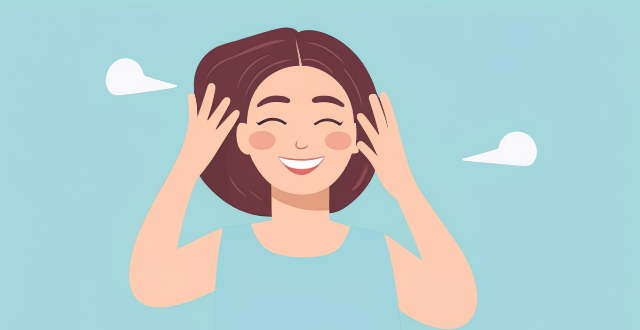
What are the best practices for personal hygiene ?
Personal hygiene is essential for maintaining good health and preventing the spread of illnesses. Best practices include washing hands regularly, showering daily, brushing teeth twice a day, wearing clean clothes, trimming nails, covering mouth when coughing or sneezing, avoiding touching face, keeping living space clean, getting enough sleep, and staying hydrated.

How can I keep my kitchen clean and hygienic ?
Keeping a kitchen clean and hygienic is essential for maintaining good health and preventing the spread of bacteria and other harmful substances. Here are some tips on how to keep your kitchen clean and hygienic: Start with a clean slate, wash hands frequently, use separate cutting boards, clean as you go, store food properly, clean appliances regularly, disinfect regularly, and take out the trash. By following these simple tips, you can keep your kitchen clean and hygienic, which will help keep you and your family healthy.
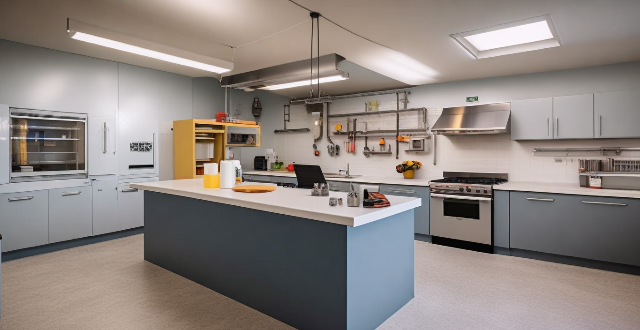
What are the recommended disinfection procedures for healthcare facilities to ensure patient safety ?
Healthcare facilities must implement strict disinfection procedures to ensure patient safety and prevent disease spread. These include using PPE, practicing hand hygiene, cleaning and disinfecting surfaces, sterilizing critical instruments, and managing waste properly. Specific areas of concern are patient rooms, operating rooms, labs, waiting areas, and public spaces. Regular training, surveillance, and environmental monitoring are essential for maintaining effective disinfection practices.